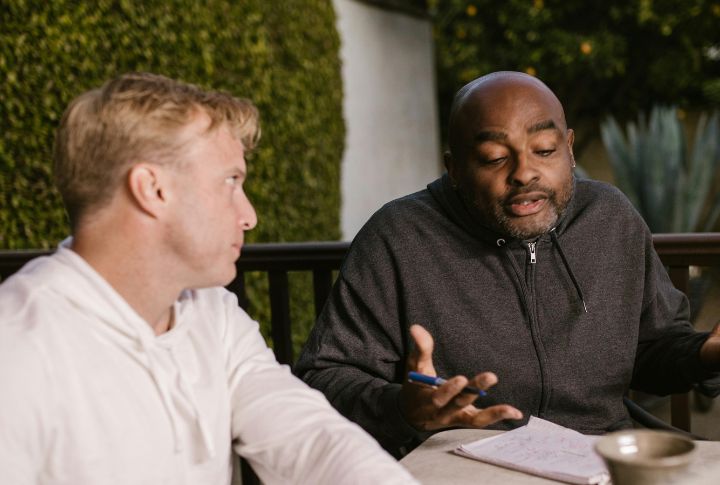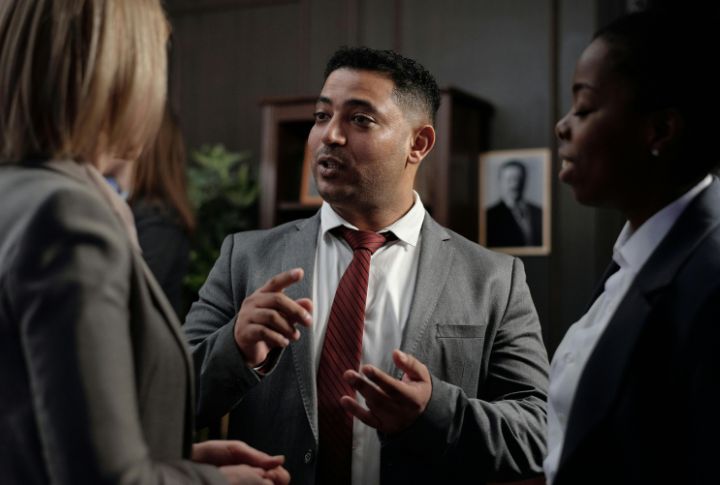
Some people can turn the tiniest inconvenience into a full-blown drama, starring themselves as the eternal victim. They thrive on blame, complaints, and constant attention. Catching these patterns early is smart and survival for your sanity. So, keep reading to spot the 20 sneaky ways someone is playing the victim card before it drains you.
Exaggerating Personal Struggles To Gain Sympathy

That friend who turns a stubbed toe into a dramatic saga? They’ve perfected amplifying minor setbacks for maximum heartstring-pulling. Papercuts suddenly need surgical attention, tears flow on cue, and every small inconvenience turns into their personal tragedy worthy of sympathy.
Blaming Others For Personal Failures

Personal responsibility mysteriously vanished from their vocabulary. Missed deadline? Obviously, their coworker sabotaged them. Failed project? The team didn’t support them enough. They’ll rewrite history faster than you can say “accountability,” always finding someone else to blame.
Refusing To Accept Constructive Feedback

Try offering helpful advice and watch the fireworks begin! Feedback feels like a personal assault to them, triggering dramatic declarations about how “everyone’s ganging up” on them. Group meetings turn into emotional battlegrounds where they’re convinced they’re being singled out unfairly.
Using Guilt To Control Others

Master guilt-trippers know exactly which emotional buttons to push. “After everything I’ve sacrificed for you” becomes their rehearsed script. Family dinners turn into guilt marathons where they collect future favors and use public sulking to pressure compliance.
Portraying Minor Issues As Major Crises

Wrong coffee order triggers social media meltdowns about having the “worst day ever.” These drama enthusiasts find tragedy in winning the lottery. Every tiny inconvenience gets full crisis treatment, complete with urgent calls to anyone who’ll listen.
Avoiding Responsibility For Emotional Reactions

Apparently, everyone else controls their emotions now—who knew we had that superpower? “You made me angry” replaces any ownership of their explosive reactions or inappropriate behavior. Workplace conflicts suddenly shift onto everyone else’s shoulders while they sit back looking completely innocent.
Seeking Constant Reassurance From Others

These people drain your energy faster than a smartphone battery on 1%. Every achievement gets downplayed, so you’ll rush in with compliments and validation. Friendships turn into one-person support groups where they’re the only member who matters.
Misrepresenting Facts To Fit Victim Narrative

Truth gets a creative makeover when it doesn’t support their persecution story. That neutral comment you made? Obviously, it was a vicious personal attack designed to hurt them. Legal situations provide perfect stages for their fiction writing skills.
Displaying Selective Memory Of Events

Their memory works like a highlight reel—only showing the parts that make them look good. Convenient amnesia strikes whenever their role in conflicts needs editing out of the story. It’s amazing how creative human memory can be when victimhood is on the line.
Holding Grudges For Extended Periods

That 2019 slight? Still weaponized and ready for deployment. Past conflicts never end because forgiveness eliminates their moral superiority. And ancient grievances get dragged into today’s arguments with impressive dedication, since grudges provide excellent manipulation material for future use.
Overreacting To Perceived Slights

Harmless jokes trigger soap opera meltdowns. They’ve mastered hypersensitivity as performance art, finding offense where none existed. Social gatherings turn into personal stages for dramatic reactions, with explosive responses calculated to hijack all attention in the room.
Manipulating Situations To Appear Helpless

Suddenly, they can’t work the coffee machine when you’re around. And other basic tasks that require your rescue mission mysteriously fail. But watch their competence magically return when no one’s watching. This calculated helplessness perfectly exploits people’s natural desire to help.
Using Passive-Aggressive Communication

Every compliment hides a hidden jab, and they deliver it with perfect innocence. Texts feel like secret ambushes you can’t confront directly. Forget straightforward conversation—it’s for amateurs. They live for sly digs, making interactions a mix of charm and silent chaos.
Demanding Special Treatment

Rules were obviously written for other people, not for someone with their unique circumstances and challenges. Deadlines stretch endlessly when vague hardships are claimed, and schools or workplaces become arenas to secure extra leniency. To them, fairness itself seems unreasonably restrictive.
Focusing Only On Negative Experiences

Good news gets filtered out, but bad news gets amplified through their personal megaphone system. That promotion last month? Completely forgotten thanks to yesterday’s minor critique that’s clearly life-ruining and unfair. Positivity is their kryptonite; it ruins the whole victim narrative.
Refusing Solutions To Problems

Helpful advice bounces off them like water off a duck’s back while complaints continue forever. Every solution gets creative excuses for why it won’t work. They sabotage their own progress because healing threatens their victim identity and sympathy supply.
Using Illness Or Trauma As An Excuse

Watch how health problems magically appear when deadlines loom. Vague “stress” serves as their golden ticket out of responsibilities—no doctor’s note required, naturally. Past trauma gets dusted off and weaponized whenever accountability knocks. Amazing how flexible these conditions get when convenience calls.
Comparing Their Struggles To Others’ Unfairly

Other people’s pain gets dismissed faster than expired coupons at checkout. “You think that’s bad?” is their favorite conversation starter when someone shares their own difficulties or challenges. Empathy applies only to themselves, leaving everyone else with nothing more than a participation trophy.
Creating Conflict To Gain Sympathy

They start fires, then play firefighter, later claiming victimization by the other party. And if they can’t find someone for the drama in real life, online forums are their next hunting grounds. Note that: Drama creation is their side hustle, and business is always booming.
Citing Uncontrollable Circumstances Repeatedly

Life, of course, happens entirely “to them,” while everyone else somehow gets to make all the decisions. Career failures turn into tales of bad timing and cosmic conspiracies, and missed opportunities are always someone else’s fault, because taking responsibility for their own actions is far too tedious.

